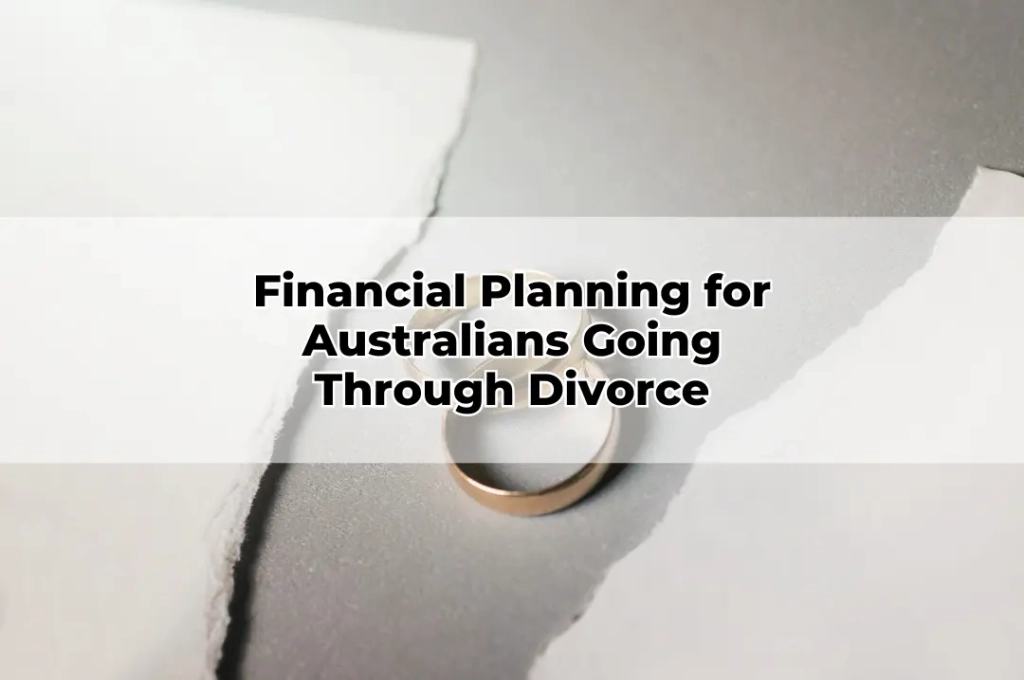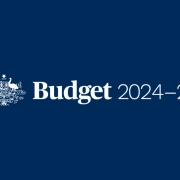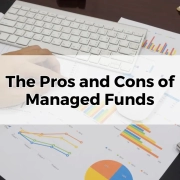Financial Planning for Australians Going Through Divorce
Table of Contents
ToggleDivorce is as much a financial recalibration as it is an emotional one. The dissolution of a marriage often dismantles years of financial co-dependence, forcing both parties to re-evaluate assets, liabilities, income, and future objectives. While the Family Court addresses legal entitlements, proactive financial planning ensures long-term stability and clarity. For Australians facing this turbulent transition, robust financial guidance can be the difference between vulnerability and security. With expert insights from a Toowoomba Financial Adviser, individuals can traverse divorce with prudence and purpose.
The Financial Impact of Divorce
Divorce invariably alters household cash flow, living arrangements, and investment strategies. Income previously shared must now support two separate households, and assets are often divided or liquidated. Superannuation splits, spousal maintenance, and child support also become part of the financial equation. Individuals must grapple with sudden financial independence-some for the first time in decades. This is where professional financial planning, tailored to individual circumstances, becomes indispensable. A structured approach not only cushions immediate disruptions but also lays the foundation for sustainable future wealth.
Assessing Your Post-Divorce Financial Position
Before forging ahead, a clear picture of your financial standing is essential. Compile a comprehensive inventory of assets-such as property, superannuation, vehicles, bank accounts, and investments-alongside liabilities like mortgages, credit cards, and personal loans. Evaluate your net worth and categorise financial resources into liquid and illiquid assets. Post-divorce income, including child support or spousal maintenance, should be itemised. From here, a financial adviser can design a realistic budget and plan, aligned with your lifestyle goals and risk tolerance.
Creating a New Budget and Lifestyle Strategy
Budgeting post-divorce involves more than number crunching; it’s about redefining your financial identity. Previous spending habits tied to dual income must be recalibrated to reflect your current financial landscape. Begin with essential expenses-housing, utilities, transport, food-then layer in discretionary items. A well-constructed budget ensures cash flow sustainability, mitigates stress, and empowers decision-making. For Australians in transition, partnering with a Toowoomba Financial Adviser offers invaluable structure and accountability during this pivotal stage.
Splitting Assets: Strategic Considerations
Dividing marital assets is rarely straightforward. It’s not just about achieving equality-it’s about ensuring equity, liquidity, and future viability. Some assets, like the family home, may carry emotional weight but limited financial pragmatism. Others, such as investment portfolios or superannuation, may offer long-term security. Evaluate asset performance, tax implications, and liquidity when deciding what to retain or relinquish. Superannuation splitting, particularly, should be handled carefully, given its future impact on retirement. Informed guidance ensures decisions align with both short-term needs and long-term aspirations.
Superannuation and Divorce: What You Must Know
Superannuation is a critical and often misunderstood component of property settlements. Under Australian law, superannuation can be divided or flagged for future division. While it remains held in a complying fund until retirement age, its inclusion in the settlement can significantly affect your financial outcome. Strategies may include retaining more of your own super while trading off other assets, or receiving a portion of your ex-partner’s super. A financial planner well-versed in SMSF and APRA-regulated funds can help ensure your entitlements are maximised and legally compliant.
Managing Debt and Credit Post-Divorce
Debt management becomes a priority during divorce, especially when liabilities were previously shared. Unravelling joint obligations-such as mortgages, car loans, and credit cards-requires negotiation and, often, legal oversight. Post-divorce, your credit profile may also shift, impacting your borrowing power. Re-establishing your credit history independently, updating credit limits, and removing yourself from joint accounts can protect your financial future. A structured debt reduction plan, crafted with expert financial planning, can help alleviate future cash flow strain and support financial recovery.
Protecting Yourself with Updated Insurance
Insurance is frequently overlooked in the aftermath of a relationship breakdown. Life insurance policies, income protection, and health cover all require reassessment. Beneficiary nominations, especially within superannuation or standalone policies, should be updated to reflect new circumstances. Income protection policies may need enhancement to cover sole income dependency. Adequate cover not only ensures peace of mind but also shields against unforeseen disruptions that could derail your recovery. An Online Financial Adviser can review existing cover and recommend adjustments aligned with your revised goals.
Tax Implications of Divorce Settlements
Divorce settlements can trigger complex tax consequences. While the Family Law Act allows for certain asset transfers to occur without immediate tax liability, not all transactions are exempt. Capital Gains Tax (CGT) may apply if assets are sold or transferred outside eligible exemptions. Moreover, income-producing assets reallocated during settlement can alter your future tax position. A prudent financial strategy includes a tax-aware approach, ideally developed in tandem with your accountant and financial planner. This ensures compliance and optimises your net financial benefit.
Building a New Investment Strategy
Post-divorce, your investment approach should mirror your new financial objectives and risk profile. Whether rebuilding wealth, preserving capital, or generating income, a diversified strategy is key. Start by reviewing existing investments for suitability, liquidity, and performance. Then consider reallocating capital to suit your current goals, timeframe, and risk appetite. This may include shares, managed funds, fixed income products, or even direct property. A tailored strategy developed with a Toowoomba Financial Adviser can restore your confidence and set a clear trajectory for future growth.
Planning for Your Retirement After Divorce
Divorce can substantially alter your retirement horizon. What was once a shared vision now becomes an individual responsibility. Superannuation balances may be lower, and retirement income projections require re-evaluation. Consider boosting contributions through salary sacrifice or concessional catch-up contributions where possible. Factor in the Age Pension, especially if your assets and income have been reduced. Early planning enables a smoother transition, with fewer sacrifices required later. Seeking Retirement Financial Advice ensures your later years remain financially comfortable and on your terms.
Updating Estate Plans and Legal Documents
Post-divorce, reviewing and updating your estate planning documents is crucial. This includes your Will, enduring power of attorney, superannuation binding nominations, and guardianship arrangements. Failing to do so could result in unintended beneficiaries receiving your assets or decision-making powers being allocated inappropriately. Ensure that all legal documents reflect your new relationships, financial interests, and intentions. A comprehensive estate plan safeguards your legacy and ensures that those you care about are protected-on your terms and in alignment with current legislation.
Emotional and Financial Resilience: Long-Term Considerations
Financial resilience after divorce is as much about mindset as it is about money. Establishing new financial habits, creating achievable goals, and maintaining discipline underpin long-term recovery. Emotional decisions can lead to costly mistakes, so it’s essential to pair personal healing with professional structure. Building financial independence, especially after a long-term partnership, requires time and guidance. Partnering with a trusted financial adviser offers not only strategic insight but emotional support through measured decision-making.
How a Financial Adviser Can Guide You Through Divorce
A financial adviser serves as a strategic ally during one of life’s most destabilising transitions. From navigating asset division and recalibrating budgets to re-establishing investment strategies and planning retirement, the role of a financial planner is comprehensive. An adviser helps you maintain objectivity, sidestep pitfalls, and implement a roadmap tailored to your goals. For residents in Queensland seeking structured support, engaging with a Toowoomba Financial Adviser ensures local expertise, professional oversight, and ongoing support during this pivotal stage.
Conclusion
Divorce is not the end of your financial journey-it’s a new beginning. With considered planning, expert guidance, and strategic recalibration, you can rebuild a secure and prosperous future. Whether you’re in Toowoomba or seeking an Online Financial Adviser with national reach, the right financial partner will help you transition with clarity and confidence. Through purposeful financial planning, Australians navigating divorce can emerge stronger, wiser, and financially empowered.









